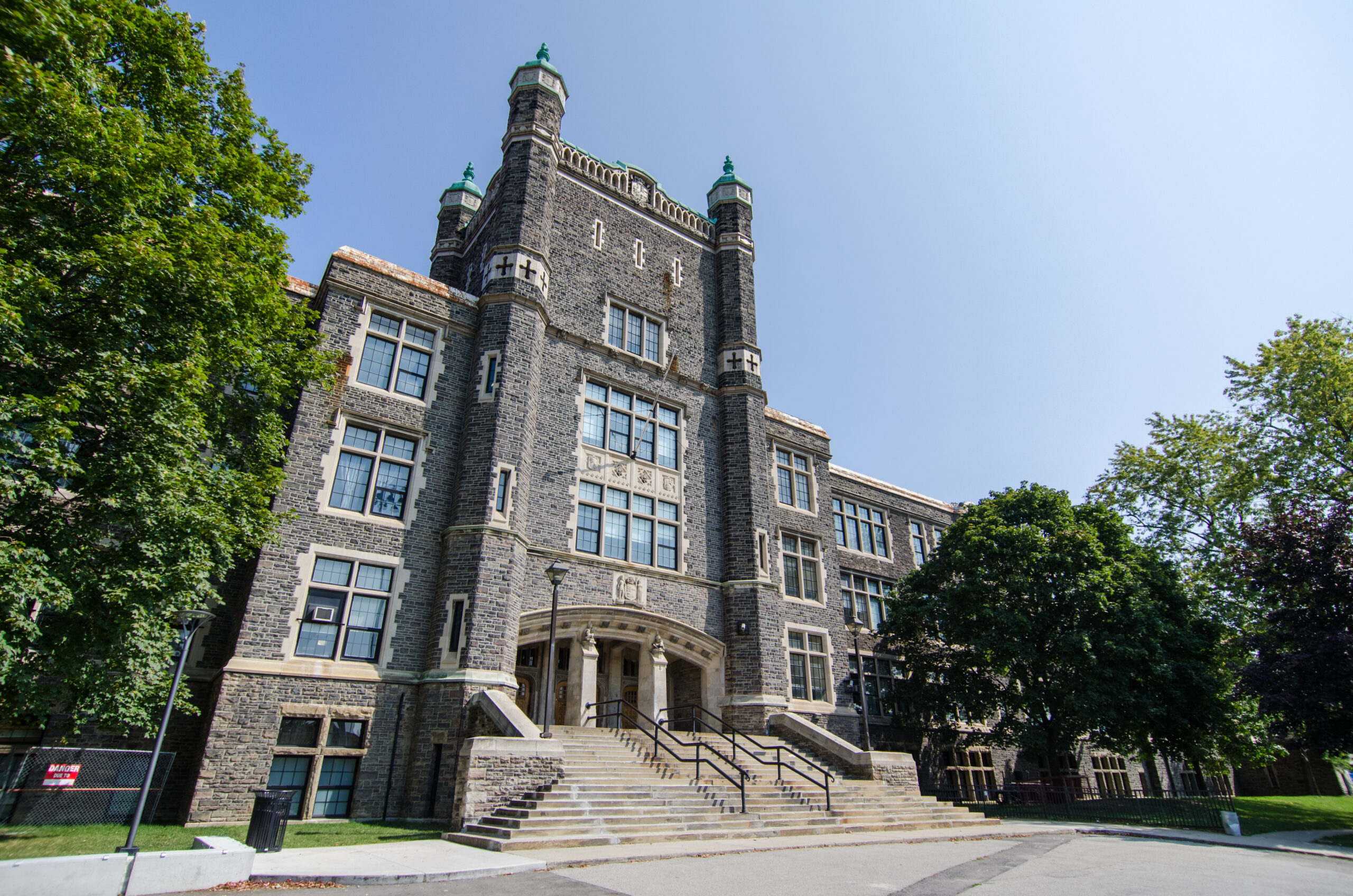Key Takeaways: PsyD Programs Toronto
- PsyDs emphasize practical clinical skills to diagnose and treat mental health conditions as a psychologist practitioner over research training.
- High local psychology career demand and reputable doctoral programs make Toronto an advantageous location to pursue PsyD training.
- Competitive applicants have strong undergraduate academics, high GRE scores, psychology backgrounds and excellent letters of recommendation.
- Typical full-time PsyD curriculums blend coursework, research and intensifying clinical placements over 5 years plus an internship.
- PsyD clinical hours help grads meet future registered psychologist requirements more easily than PhD routes.
- Carefully weigh research, placement, curriculum and other priorities in finding your best fit from quality Toronto PsyD programs.
- Ongoing local psychology shortages signal Doctor of Psychology program offerings will continue expanding ahead at Toronto universities.
Earning a PsyD can lead to fulfilling careers improving mental wellbeing across diverse populations. As Psychology job openings outpace supply in Canada’s healthcare sector for years ahead, proper training from an accredited Toronto program offers bright prospects to secure in-demand clinical psychologist roles.
PsyD stands for Doctor of Psychology, and PsyD programs in Toronto allow students to earn this professional degree focused on clinical psychology practice. Unlike a PhD in psychology which emphasizes research, PsyD programs emphasize the practical application of psychology theories and clinical skills.
Pursuing a PsyD program in Toronto can open up career paths in psychology research, teaching, and most commonly, mental healthcare in clinical settings. As the demand for qualified mental health professionals continues rising, a PsyD degree becomes increasingly valuable in Toronto’s job market.
This comprehensive guide explores all aspects of applying to and completing a PsyD graduate program in Toronto. It covers the admissions process, program options, curriculum details, career outlook, and more to consider when researching PsyD programs in Toronto.
What is a PsyD?
A Doctor of Psychology or PsyD is a professional doctorate degree specifically focused on gaining expertise in clinical psychology practice. PsyD programs aim to develop psychology practitioners who can assess, diagnose, and treat mental health disorders through evidence-based therapies.
While PsyD programs include research training, they place far more emphasis on applied clinical experience compared to a traditional PhD in psychology. PsyD students complete rigorous clinical practicums and internships to gain extensive hands-on skills seeing patients.
In many cases, PsyD programs allow graduates to register for clinical psychologist licenses after meeting set supervision requirements. These programs create qualified mental health professionals ready to provide therapy in Toronto hospital systems, private practices, community health centers, and more clinical settings.
PsyD vs PhD in Psychology
It’s important to understand the key differences when exploring both Doctor of Psychology (PsyD) and Doctor of Philosophy (PhD) graduate programs. While there is overlap, these two psychology doctorates serve different primary purposes:
PsyD Focus: Clinical Practice
PsyD degrees concentrate on gaining skills that will be directly relevant to clinical psychology practice:
- Diagnostic assessment
- Individual and group psychotherapy
- Evidence-based treatment methods
- Psychological testing
- Interventions across diverse populations
- Clinical supervision/consultation
- Practicum/internship experience
PhD Focus: Research & Academia
PhD psychology programs focus more heavily on research competencies required for academic or scientific careers:
- Developing original experiments
- Analyzing/publishing research
- Data analysis methodologies
- Lab management
- Grant proposal writing
- Teaching psychology theories
In short, those wanting to conduct research and teach at the university level tend to pursue a PhD, while PsyDs open more avenues to licensed clinical practice.
Many graduates leverage both the research and clinical elements of these advanced psychology degrees. But it’s wise to decide whether you ultimately want to prioritize research or practical patient skills when applying to doctoral programs.
Why Earn a PsyD in Toronto?
Pursuing a Doctor of Psychology specifically in the Toronto area can be an excellent choice given rising psychologist career prospects, PsyD program quality, and abundant clinical opportunities available locally:
Growing Psychology Career Demand
Mental healthcare continues expanding rapidly in Ontario and across Canada. Psychology is projected to be one Canada’s top professional careers for job growth over the next 10 years.
The psychology profession as a whole is expected to see 22% more job openings by 2028 – much faster than average job market growth. Clinical and counseling psychology roles make up a major portion of these fast-growing psychologist positions.
A PsyD degree gives graduates the credentials in highest demand at healthcare employers hiring mental health professionals in Toronto and nationwide.
High-Ranked Doctoral Programs
Toronto university PsyD programs rank among Canada’s most reputable and competitive. Institutions like Ryerson University attract large applicant pools seeking limited program spots each year.
Graduating from a prestigious, rigorous PsyD program can give job applicants an edge when competing for top psychologist roles. Toronto PsyD alumni often gain advantages progressing into competitive clinical residencies, private practices, hospital systems and academic programs.
Abundant Clinical Training Opportunities
PsyD students complete intensive clinical practicums preparing them to deliver psychotherapy and mental health assessments. Toronto provides no shortage of quality training placement sites across diverse healthcare settings:
- Hospital psychology departments
- Community health clinics
- University counseling centers
- Private practices
- Social service agencies
- Correctional facilities
- Specialized care facilities
This wide range of clinical site options allows PsyD programs to train students extensively across demographics and mental health situations. Hands-on exposure during the PsyD equips graduates to enter practice confidently in Toronto’s dynamic healthcare environment.
In summary, Toronto offers an ideal location to train in an applied clinical psychology doctorate program. PsyD grads enter an abundant job market hungry for their in-demand mental health expertise.
PsyD Admissions Requirements Toronto
Doctor of Psychology programs have highly competitive admissions just as rigorous as PhD programs. Typical PsyD admissions requirements include:
Prerequisite Bachelor’s Degree
- Bachelor’s in Psychology, Behavioral Science, Clinical Health – with recommended 10-15 related undergraduate courses. Competitive applicants generally have a major or double major in psychology.
Minimum Undergraduate GPA
- Most programs require around a 3.0 CGPA minimum from a bachelor’s degree. The average accepted applicant often holds a GPA of 3.5 or above.
Graduate Record Exam (GRE) Scores
- Competitive applicants score around 300 combined on GRE verbal and quantitative sections. Top programs expect scores in at least the 50th percentile.
Academic Letters of Recommendation
- 2-3 recommendation letters from undergraduate professors or psychology research advisors evaluating the applicant’s abilities.
Personal Statement
- An essay outlining the candidate’s academic interests, clinical aspirations, research experience, and preparation for doctoral study.
Interview
- An admissions interview allows faculties to further assess students on clinical/research competencies and fit within their PsyD program.
- Work experience in psychology, research or volunteer background, and other extras can also strengthen an application when applying to competitive programs.
Meeting just the minimum PsyD requirements won’t guarantee admission, as applicants are evaluated holistically on all aspects of their application package.
PsyD Programs Toronto Universities
While still small in number, some of Canada’s most prestigious PsyD programs exist right in the Greater Toronto Area (GTA). Here are the main universities currently offering Doctor of Psychology graduate programs locally:
Ryerson University
Ryerson has one of Canada’s only APA accredited PsyD programs and is highly competitive each application cycle. Their 5-year program focuses on adult populations and integrating theory with clinical work.
Program Details:
- 115-121 credits
- 750+ hour internship
- $7,260 approximate annual domestic tuition
- Extensive research and clinical placements
University of Toronto Scarborough
This APA accredited 5-year PsyD concentrates on using psychological science to inform evidence-based practice. Students complete major adult and child clinical placements.
Program Details:
- 123 credits
- 750 hour internship
- $8,780 approximate annual domestic tuition
- Research and clinical research streams
The program was previously jointly offered by the University of Toronto and OISE Graduate School of Education. After becoming solely a UTSC program in 2021, the inaugural graduate cohort under the new structure begins Fall 2023.
Adler University (Toronto Campus)
Adler University has several North American campuses but its only Canadian location is in Toronto, Ontario. Their PsyD program follows Alfred Adler’s humanistic psychology theories.
Program Details:
- 126 credits
- Two 1,500 hour internships
- Course-based with no specific dissertation
- Small class cohorts
Typical PsyD Curriculum Overview
While curriculums have some variability across PsyD programs, most follow a similar framework balancing research, clinical coursework and hands-on placements. Expect core courses like:
Year 1: Foundational Courses
- Cognitive Psychology
- Developmental Psychology
- Personality Theories
- Psychopathology
- Ethics in Psychology
- Statistics/Research Methods
- Psychological Assessment
Year 2: Advanced Concepts
- Psychotherapy Approaches
- Evidence Based Treatments
- Psychopharmacology
- Cultural Psychology
- Cognitive Behavioral Therapy
Year 3-4: Clinical Placements
- Practicums Rotations
- Comprehensive Practice Exams
- Diagnostic Testing
- Individual/Group Counseling
- Internship Preparation
Year 4-5: Concluding Elements
- Dissertation/Capstone Research
- Internship – 750+ clinical hours
- Board Exam Preparation
Clinical practicums gradually increase until the final full-time supervised clinical internship. This exposes students to diverse real-world psychology practice over 1500+ hours before graduating.
PsyD vs PhD Curriculum Differences
Comparing curriculums shows the clinical emphasis in PsyD programs versus research focus on PhD psychology tracks:
PsyD Curriculum
- More course-based instruction
- Increased hands-on clinical training
- Two years full-time practicums/internship
- More psychological testing/evaluation
- Diagnostics, psychotherapy and interventions
- Licensing exam preparation
PhD Curriculum
- Early research lab placements
- More overall research credits
- Developing experiments
- Defending dissertation
- Grant proposal writing
- Teaching assistant roles
- Publishing papers
PsyD programs allow graduates to count clinical hours towards meeting registered psychologist license requirements after graduation. These robust clinical training elements stand as the biggest contrasts from typical PhD psychology curriculums.
Career Pathways With a PsyD Degree
Earning a Doctor of Psychology opens doors to a breadth of psychology career paths. But compared to PhDs, PsyDs often prepare graduates specifically for professional clinical practice.
Here are some of the top occupations Toronto PsyD graduates pursue:
Licensed Psychologist
Over 60% of PsyD grads pursue meeting registered psychologist requirements to provide psychological therapies, testing and assessments across settings like:
- Community mental health clinics
- Group/private practice
- Psychiatric hospitals
- University health centers
After supervised practice post-graduation, PsyDs have strong qualifications to obtain registered psychologist status.
Psychological Associate
Without completing further registration, PsyD holders also frequently work initially as psychological associates or psychometrists conducting assessments under supervision of licensed psychologists.
Post-Doctoral Residencies
Competitive hospital systems, community clinics and other facilities often have 1-2 year specialized residency programs for early career PsyDs to gain added clinical experience in advanced practice areas. These provide advanced training and mentorship before independent practice.
Academia & Research
Some PsyDs leverage their clinical research training to teach psychology courses as university faculty or lecturers. PsyD research skills also transfer into program evaluation, staff training, quality assurance roles and projects in healthcare settings.
In summary a Toronto PsyD degree is tailored for multiple career routes applying clinical skills in advanced psychologist practice, psychological research, higher academia or specialized clinical settings.
PsyD Program Considerations
Before applying to Doctor of Psychology programs, there are a few key considerations to weigh regarding PsyD training focus, timelines and costs:
Time Commitment
- PsyDs take 4-6 years post-bachelor degree including internship and dissertation. Programs average 5 years full-time.
- Expect a demanding hour commitment balancing research, coursework and 20-25 clinical placement hours weekly in later years.
Financial Investment
- Annual Toronto PsyD tuition often ranges from $7,000 to over $10,000 for domestic students depending on specific programs.
- Additional costs come from textbooks, fees, clinical travel and dissertation expenses over 4+ years.
- Financial aid like graduate scholarships and student loans can offset costs.
Program Compatibility
- A central PsyD application consideration is whether program research, clinical placements and curriculum align with your specific career aspirations.
In the end, dedicating 5 years to doctoral clinical psychology training can pay dividends over a 30+ year professional career span. But the demands of completing a Toronto PsyD call for carefully weighing program elements against individual factors.
Choosing the Best PsyD Program in Toronto
Start weighing PsyD programs by making a checklist of your top priorities – location, cost, research type, clinical placements, specialty focuses, licensure goals or other personal considerations.
Review curriculum details, clinical partnerships, research outputs and other program factors against your priorities. Visit campus if possible to directly assess program culture and professor expertise.
If fully licensed practice is your goal after graduating, also examine licensure pass rates amongst program alumni. Some questions to explore:
- What licensure exams are graduates taking (EPPP, EPPP2)?
- How many program graduates pursue registration?
- What is the licensure exam pass rate for program alumni?
These indicators help determine how well a program specifically prepares students for meeting Licensed Psychologist or other designation requirements post-graduation.
In the end, finding best personal PsyD program fit depends most on which Toronto option offers robust research and clinical training matching your career aspirations in professional psychology practice.
Future PsyD Program Growth
While Toronto currently has limited Doctor of Psychology options compared to the United States, local program availability continues expanding to meet rising psychology labor demands.
Both provincial and national surveys of the psychology profession consistently cite the same shortages across Canada:
- Shortage of registered clinical psychologists to meet mental healthcare needs
- Shortage of accredited psychology residency positions required before registration eligibility
These shortfalls have Canadian psychology academic leaders calling for major increases in clinical psychology graduate student enrolment over the next decade. Clinical psychology doctorates like the PsyD directly provide the highly skilled practitioners and future faculty needed to help correct national shortages.
Several Ontario universities have recently added undergraduate psychology degrees indicating more graduate psychology expansion ahead. The University of Guelph-Humber launched their first bachelor’s in psychology degree in 2018. Ontario Tech University unveiled a new B.Sc. psychology program in 2021.
These newer undergrad offerings will feed more prospective PsyD applicants from local student populations into Ontario’s graduate admissions pipeline.
In turn, growing demand for more accredited PsyD programs will likely prompt additional Toronto universities to launch Doctor of Psychology degrees over the coming years.
The emergence of Canada’s first private, APA accredited clinical psychology PhD program also sets an interesting precedent. The Chicago School of Professional Psychology opened a Toronto campus in 2013 followed by their research-focused PhD program in 2018.
While private PsyD programs have existed for decades in the USA, this milestone marked Canada’s first private sector clinical psychology doctorate. If successful over the long-term, the Chicago School’s unique PhD track may inspire similar private Doctor of Psychology initiatives in Ontario.
Regardless if more private or public university efforts arise, Toronto will almost certainly offer more quality PsyD education options catering to swelling enrollment demand within this decade.
FAQs: PsyD Programs Toronto
Are PsyD programs APA accredited in Canada?
Currently Ryerson University and University of Toronto Scarborough run Canada’s only two APA accredited clinical psychology PsyD programs. Adler University’s PsyD holds accreditation from the Canadian Psychological Association (CPA) instead.
How competitive are PsyD program admissions?
Toronto PsyD programs admit only around 12-20 students per cohort, so spots are extremely competitive. Acceptance rates often fall between 2-8% given applicant pools are 100+ students each cycle. Applicants should plan to apply to multiple programs.
Can I work while completing a full-time PsyD?
PsyD programs strongly discourage working during the program given heavy course, research and intensive 30-40 hour/week practicum commitments. Some students continue limited part-time employment, but should expect 60-80 hour weekly obligations balancing program demands.
Are internships paid during PsyD training?
No students complete unpaid placements for clinical hours requirements at hospitals, clinics or community agencies. But full-time internships lasting 9-12 months are demanding and programs discourage working another job simultaneously.
How much salary can I expect after graduating my PsyD?
Many new Toronto PsyD graduates earn around $70,000-90,000 annually starting as psychological associates, program evaluators or clinical coordinators. Licensed psychologists average over $100,000 as they gain experience.
How long does it take to become a registered psychologist?
After completing a 4-5 year PsyD, graduates pursuing registration must still complete a 1 year supervised residency, pass EPPP licensing exams, and finish additional supervised clinical practice meeting CPA requirements – which overall can total 2-5 more years.
Are there PsyD programs in Ontario?
Yes, there are a few quality PsyD degree programs currently offered at universities in Ontario. The top options are Ryerson University and University of Toronto Scarborough in the Toronto area, along with Adler University’s Toronto campus PsyD program. These CPA or APA-accredited Doctor of Psychology degrees meet growing demand for qualified clinical psychology practitioners across Ontario.
How long is a PsyD program in Canada?
Typical PsyD programs in Canada take around 5 years to complete full-time. This includes 1-2 years of foundations coursework, 2 years of advanced concepts and intensifying clinical placements, then a final year for concluding elements like a dissertation and 750 hour supervised clinical internship. Total credits usually range from 115-126 depending on the university.
Can you get a PsyD without a Masters in Canada?
Yes, almost all Canadian PsyD programs allow students to enroll directly after completing an undergraduate degree. PsyDs operate as standalone professional doctorates similar to other direct-entry programs like Physiotherapy or Pharmacy. Applicants need a bachelor’s degree in psychology or related major, not a masters.
How much do PsyD make in Canada?
Many PsyD graduates begin as psychological associates or coordinators earning approximately $70,000-90,000 annually starting out. Once registered as licensed psychologists, pay increases significantly. The average salary for experienced psychologists in Canada is over $100,000 according to government labour data. PsyDs in executive hospital roles, private practice or high-level research can earn $150,000-$200,000 in more senior clinical or leadership psychology positions.
Does Canada have PsyD programs?
Yes, PsyD programs are gaining more popularity across Canada along with rising clinical psychology workforce demand. Canada currently has 16 universities offering accredited Doctor of Psychology degrees coast-to-coast. Top options are found at institutions like Ryerson University, University of Calgary, and Simon Fraser University. The emergence of Canada’s first private APA accredited PhD psychology tracks also signals potential for more privately run PsyD initiatives emerging ahead if enrolment demand continues growing.
Can I be a clinical psychologist with a masters in Ontario?
No, a master’s degree alone does not allow someone to practice independently as a clinical psychologist in Ontario or become a registered psychologist. Mandatory requirements include completing a doctoral degree in clinical psychology (PsyD or PhD), accruing supervised clinical practice hours, and passing professional exams. However, those with clinical-focused masters like Counseling Psychology or Applied Behavior Analysis can often work in healthcare or school settings under supervision in associated roles.
Do you need a PhD to be a clinical psychologist in Ontario?
In most cases, yes – completing either a PhD or PsyD clinical psychology doctoral program at minimum is required to qualify for clinical psychologist registration. However in some provinces, experienced psychological associates with many years of supervised practice post-masters can challenge exams to attempt qualification without completing a doctorate. But Ontario and most regions still require formal clinical psychology doctoral training for licensure eligibility.
What is the difference between a PsyD and a PhD in clinical psychology Canada?
A PsyD or Doctor of Psychology focuses mainly on applied clinical skills for professional practice treating patients. More coursework and practicums prepare grads for diagnosing and therapeutic work. A PhD in clinical psychology prioritizes research methodology for an academic career. While still gaining clinical experience, PhDs emphasize teaching, publishing studies, data analysis expertise over direct client contact hours compared to a PsyD.
Do you need a doctorate to be a clinical psychologist in Canada?
Yes, in almost all cases a Doctor of Psychology (PsyD) degree or Doctor of Philosophy (PhD) in clinical psychology is mandatory to qualify for registered clinical psychologist status across Canada. No province allows independent practice authority with just a masters level degree. Completing an accredited, multi-year doctoral program with robust supervised hours standardizes requirements to ensure licensed clinicians are comprehensively trained.
How much does a registered psychotherapist make in Ontario?
Registered psychotherapists in Ontario earn approximately $60,000 to $80,000 annually on average based on government data. New grads often start around $55,000 while senior psychotherapists in leadership or private practice may make up to $110,000 per year. Salaries also range depending on full-time hours, specialty, healthcare settings, and regional variations. Demand for RPs continues rising significantly with many new master’s degree holders entering this registration category yearly.















